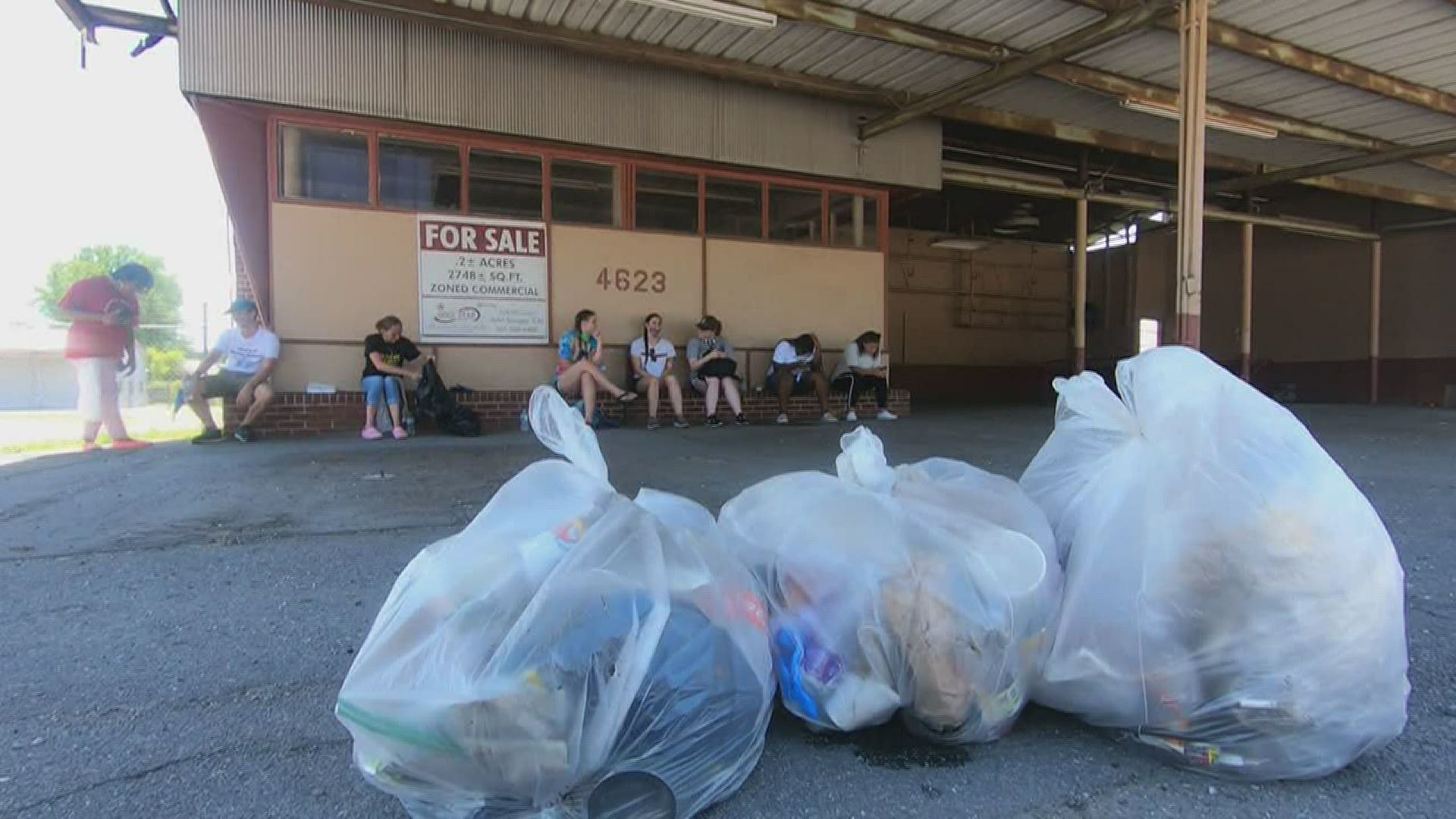LITTLE ROCK, Ark. — New community action groups, created in the uproar over the death of African-Americans in police custody, started to venture beyond the protest grounds in Little Rock Saturday by holding a community cleanup.
Organizations called LR C.A.R.B.O.N. (Community Activists Rebuilding Our Nation) and Level Up gathered members to help pick up trash and paint graffiti in the neighborhood surrounding historic Central High School.
It's an effort the mostly youthful groups say is long overdue and urgently called for, even as areas around the State Capitol still show signs of clashes with police two weeks ago.
"People would like to see that we're not just out breaking stuff," said Marcus Hunter, the vice president of LR C.A.R.B.O.N. "That we're actually trying to help our own communities build up."
About two dozen people fanned out from the school over three hours, eventually making their way down Asher Ave. in the Wright Ave. neighborhood, a busy thoroughfare with historically high crime rates about four miles southwest of the capitol.
"I think that if you're going to talk the talk, you've got to walk the walk," said Laura Brunsen, who came from Conway to take part. "That means reaching out to the community and making changes in various aspects."
As they wrapped up, the groups had dozens of bags of trash ready for pickup. Another trio spent time repainting direction arrows on the walls of Central High's Quigley Stadium.
"We want to make sure that our communities with our black people in them are as strong and as clean and as nice as possible," said Hunter.
For organizers like Zaria McClinton, an event like this provides a change after weeks of outrage.
"It's been a relief for me just knowing that I'm giving back to the community and seeing a positive outcome," she said.
After a lunch of barbecue back on the Central High lawn, many from the group made plans to join marches that afternoon and evening downtown. The lunch and the energy from helping a community in need seemed to keep them going.
"There is a lot of hurt in our community. There's a lot of anger," said McClinton. "At the same time, when you start doing things that affect the community directly, and we are sure we're making a positive turn, then people start seeing the light at the end of the tunnel."

